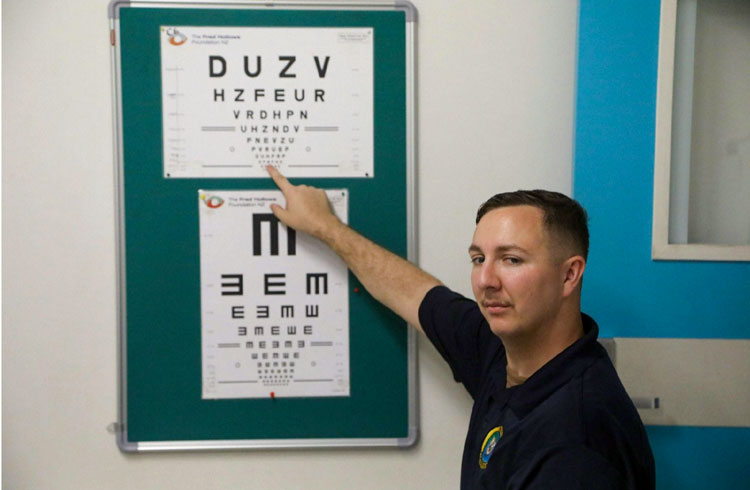In today’s healthcare landscape, prevention is becoming just as important as treatment. Regular health screenings help detect potential problems early, allowing for timely intervention before they develop into serious conditions. Clinics across Canada are taking a more proactive approach to community wellness, emphasizing accessible diagnostic care. Facilities such as vein clinic centers exemplify this shift, offering specialized screenings that not only treat existing symptoms but also help prevent future complications.
The Power of Early Detection
Early detection saves lives and costs. Many chronic illnesses, including heart disease, diabetes, and various forms of cancer, begin silently, showing little or no symptoms until advanced stages. Preventive screenings catch these issues early, when treatments are simpler, more effective, and less invasive.
For example, vascular health assessments can reveal circulation problems before they lead to ulcers, clots, or strokes. Similarly, cholesterol tests, mammograms, and colonoscopies remain critical tools for identifying risks long before they become emergencies. Early intervention turns potential crises into manageable conditions, supporting both individual health and community wellbeing.
Community-Based Health Responsibility
Community wellness is built on collective awareness. When individuals prioritize regular checkups, the broader population benefits by reducing strain on healthcare systems and lowering overall medical costs.
Many local clinics now partner with public health organizations to make screenings more accessible through outreach programs and mobile services. These initiatives ensure that residents, especially in rural or underserved areas, can access timely evaluations without the barriers of travel or cost.
Education plays a major role as well. Public awareness campaigns and community events encourage people to understand their risk factors and take action sooner rather than later.
The Importance of Vascular Health
Vascular screenings, often overlooked, are among the most important preventive measures available. Circulatory problems can contribute to heart disease, varicose veins, and even life-threatening conditions like deep vein thrombosis (DVT).
At specialized facilities such as vein clinics, ultrasound technology allows physicians to visualize blood flow and detect blockages or valve malfunctions early. These assessments not only improve comfort and mobility but can also prevent complications like ulcers or pulmonary embolisms.
Healthy circulation is essential to every organ in the body, making vascular care a cornerstone of preventive medicine.
Expanding the Definition of Prevention
Preventive healthcare has expanded beyond physical screenings to include lifestyle assessments and mental health evaluations. Stress management, diet, and exercise all contribute to long-term health outcomes. Clinics increasingly combine medical checkups with holistic wellness programs that address both body and mind.
For instance, patients identified as at-risk for cardiovascular issues may also receive nutritional counseling and personalized exercise plans. This integrated model reflects a growing understanding that prevention is multi-dimensional, requiring education, follow-up, and behavioral support alongside diagnostic testing.
Technology’s Role in Modern Screening

Digital health tools are revolutionizing preventive care. Wearable devices, remote monitoring apps, and AI-driven diagnostic systems are making health data more accessible and actionable. Patients can now track blood pressure, heart rate, and glucose levels at home and share results directly with their healthcare providers.
Telemedicine has also expanded access to screening consultations. People in remote or busy environments can review lab results, schedule appointments, and discuss preventive strategies without leaving home. Technology not only increases convenience but also encourages consistency in care.
Economic and Social Impact
Preventive screenings don’t just improve individual health; they strengthen entire communities. Healthier populations require fewer emergency services, fewer hospital stays, and less long-term medication, reducing overall healthcare expenditure.
Employers also benefit from healthier workforces, with fewer sick days and greater productivity. Public health systems gain resilience by redirecting resources toward innovation and education rather than chronic crisis management.
The social impact is equally powerful: communities that prioritize prevention build a culture of wellbeing where awareness replaces avoidance and empowerment replaces fear.
Addressing Barriers to Access
Despite their benefits, screenings remain underused, especially among younger adults and low-income populations. Common barriers include lack of awareness, time constraints, and misconceptions about risk. Some avoid testing due to anxiety or fear of results.
Healthcare providers are responding with flexible scheduling, community-based events, and education campaigns that make screenings approachable. By reframing preventive care as empowerment rather than obligation, participation rates can rise significantly.
Building a Preventive Culture
The success of preventive care depends on mindset. Regular checkups should be seen not as reactions to illness, but as essential habits, no different from maintaining a vehicle or exercising regularly. When communities normalize proactive health management, they create a ripple effect of wellness that benefits everyone.
For medical professionals, the emphasis is shifting from volume to value: investing time in prevention to reduce the need for long-term intervention.
The Future of Preventive Medicine
Looking forward, preventive care will continue to integrate technology, accessibility, and education. Personalized health plans based on genetics, lifestyle, and biometrics will make prevention even more targeted and effective.
Further support from organizations like the Public Health Agency of Canada ensures that preventive medicine remains at the heart of a sustainable healthcare system, helping Canadians live longer, healthier, and more active lives.











